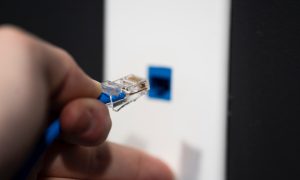This Back2work disbursement scam first appeared within the past few months. They claim to offer various monetary benefits, such as payroll tax credits, employee retention programs, direct bank deposits, and more. However, there is no way to ensure the authenticity of the emails or messages you receive. To protect yourself from these scams, be careful and stay away from them at all costs. Here are some things you should do if you receive a back2work disbursement scam email:
Back2work disbursement scam messages sent from nations not familiar with US English
The back2work disbursement scam is a very real and popular scam, and the messages are sent by individuals posing as the Indiana Department of Workforce Development. They claim to offer thousands of dollars through the Back 2 Work deposit, but the program does not exist in Indiana. Moreover, the Indiana Department of Workforce Development does not send text messages and never attempts to contact individuals through this medium.
The Better Business Bureau of Northern Indiana has issued a warning against text messages posing as the Indiana Department of Workforce Development. The fake text messages promise recipients a $3,800 payment for returning to work and ask them to provide their banking information. However, the texts may contain malicious malware, which can grant scammers access to sensitive information and lead to identity theft. The message should be deleted immediately.
Text message scam
The latest text message rip-off to hit Indiana Organization workers is the Back2work Disbursement Scam. If you’ve been receiving these messages, beware! These scams are phishing attempts designed to trick you into sending payment information. While these scams are not necessarily malicious, it’s always better to be on the safe side and delete the text if you receive one. This scam has been spreading like wildfire, so be sure to follow the steps listed below to protect yourself.
The Back2work Disbursement Scam has been in the news for the past few months. The scammers claim to offer various monetary benefits for employees, including payroll tax credits and employee retention schemes. While these scams may sound too good to be true, they’re not. In fact, you can’t guarantee whether any email you receive is legitimate. You may end up being scammed more than once!
Another common text message scam involves a “fake” short code. The text will ask for personal information, and the scammer will use this information to open new accounts or invade existing ones. The following text marketing scam indicators can help you identify the fake companies and scams. It is important to remember that the content of this article is for informational purposes only. For legal purposes, you should seek legal advice.
Another common scam involves an Indiana Department of Workforce Development scam. The scammer will pose as a representative of the agency and claim to offer you thousands of dollars in direct deposit if you return to work. There is no such program in Indiana. The IndyDoW will never attempt to contact you via text message. And you should never provide your bank account details to anyone who contacts you for money.
- Also Read: Dejounte Murray and Paolo Banchero Trade Barbs on Instagram Latest Details!
- Also Read: Condogames.xyz Roblox Know The Exciting Details!
Phishing scam
The Back2work disbursement scam has been circulating in recent months. This scam claims to offer various monetary benefits to its users, such as payroll tax credits and employee retention program. The only problem is that the emails do not guarantee their authenticity. In order to avoid getting caught up in this scam, you should avoid clicking on links in such emails. Besides, you cannot be sure if the email is really from DWD.
The Department of Workforce Development never sends out text messages requesting you to provide your credit card information. In the event that they did, they would ask you to verify your credit card information on the state portal, and not provide a third-party website link. If you suspect that you have been a victim of this scam, read the small print and delete the message from your phone. The BBB offers tips on how to avoid smishing attempts, including updating your anti-virus software and blacklisting your phone number. Moreover, keep in mind that Back2work disbursement scam messages are usually sent from countries not familiar with US English. If you are tempted to click on the links in these messages, always check their spelling and grammar.
Scammers have also started targeting residents applying for unemployment benefits. They pose as representatives of the Indiana Department of Workforce Development and claim that they have $3,800 in cash ready for the taking. The message also claims that the funds will be direct deposited into the user’s bank account if they click on a link in the text. Unfortunately, the link in the text message may contain malicious software, which allows the scammers to steal sensitive information and steal your identity.
The scammers may pose as a government agency, consumer advocacy group, law firm, charity, or a fake company. In addition, they may ask you to pay an upfront fee – which may be disguised as a processing fee or administrative charge, a tax, or a shipping and handling charge. Then, they will disappear with your money. So, if you are a victim of this scam, don’t hesitate to report them to the relevant authorities.
- Also Read: Is My Derma Dream Legit? Authentic Review!
- Also Read: Kitten Milk Roblox Know The Complete Details!











